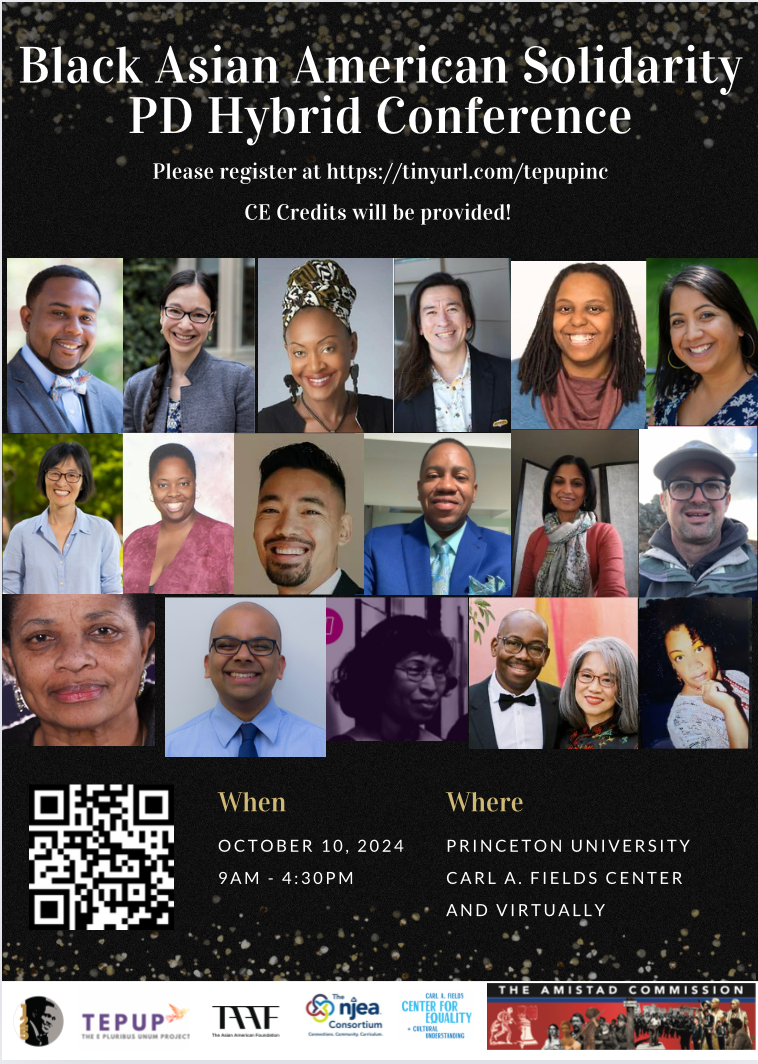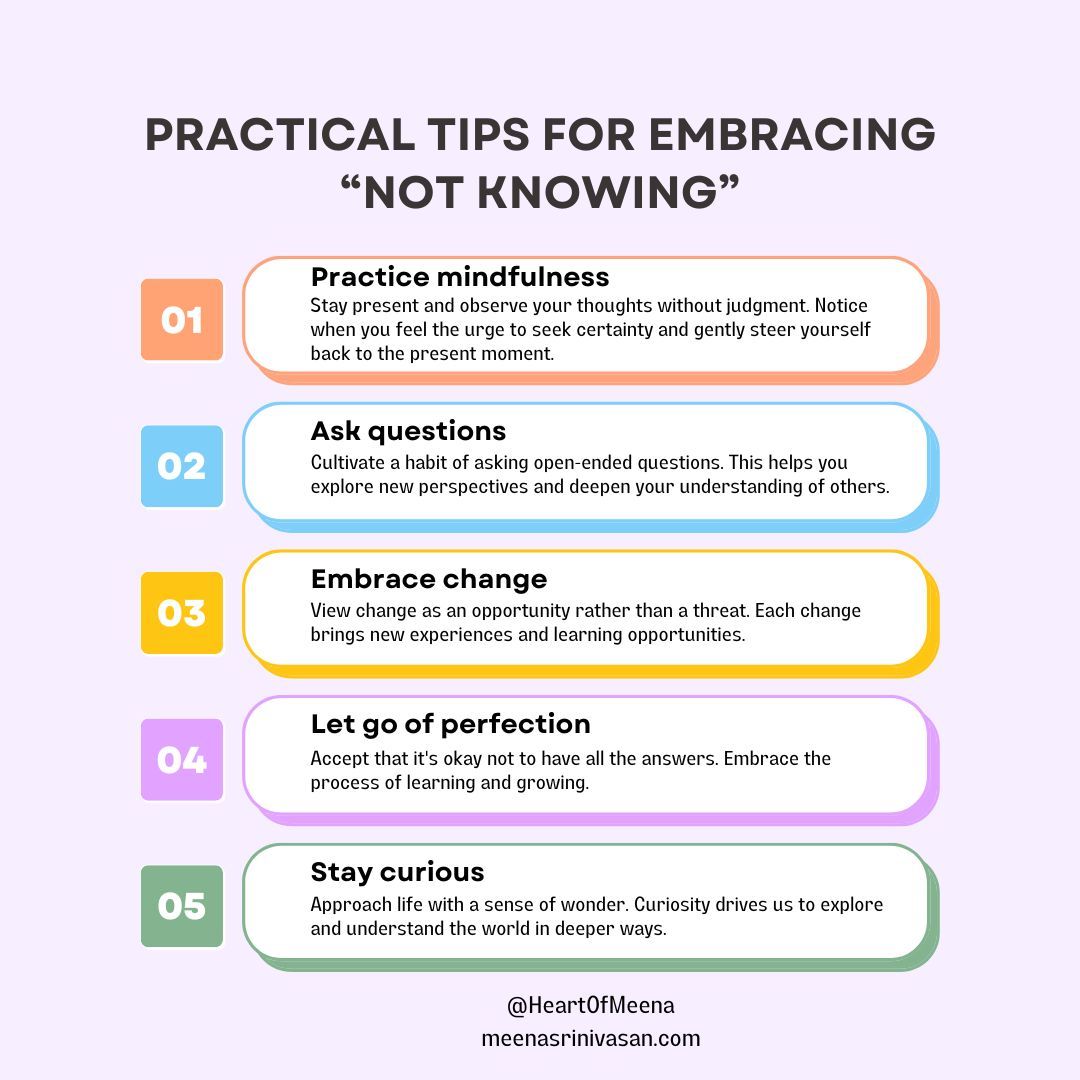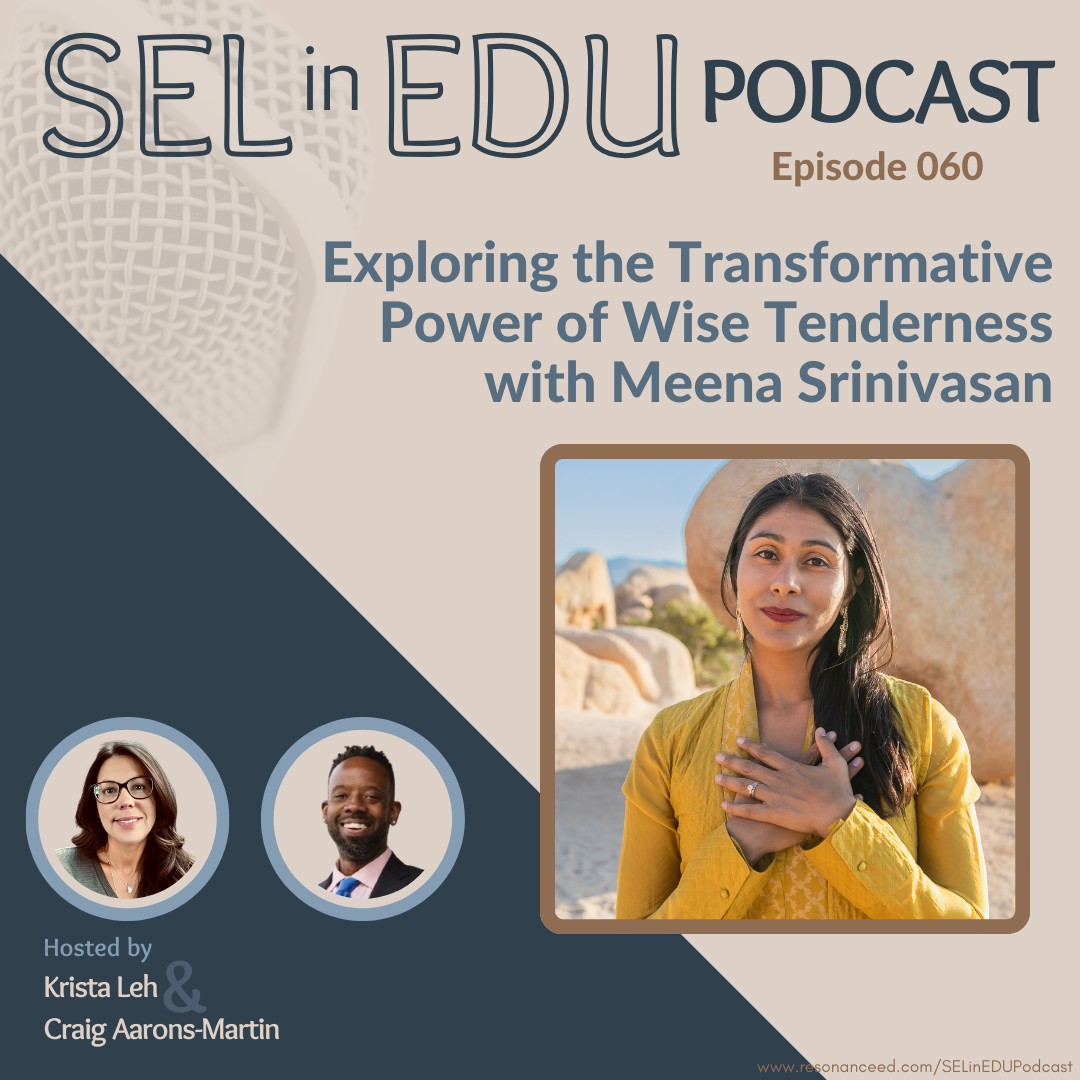The Power of Leaning Into Not Knowing
Wisdom isn't just about accumulating knowledge; it's about understanding the limits of what we know.
Being a mom has been my greatest teacher in releasing control. It's a constant reminder that I am not the general manager of the universe. As the famous saying goes, "We plan, God laughs." Although I can’t yet say I welcome moments of uncertainty, I aspire to embrace them as they shake my core and compel me to navigate the unknown.
A key tenet of my spiritual practice is leaning into not knowing, which also involves Non-Attachment to Views. This is beautifully articulated in the second of the 14 Mindfulness Trainings of the Order of Interbeing, which I'm deeply committed to studying, practicing and integrating.
Non-Attachment to Views: Aware of the suffering created by attachment to views and wrong perceptions, we are determined to avoid being narrow-minded and bound to present views. We are committed to learning and practicing non-attachment to views and being open to others’ experiences and insights in order to benefit from the collective wisdom. We are aware that the knowledge we presently possess is not changeless, absolute truth. Insight is revealed through the practice of compassionate listening, deep looking, and letting go of notions rather than through the accumulation of intellectual knowledge. Truth is found in life, and we will observe life within and around us in every moment, ready to learn throughout our lives.
I’m grateful to my dear friend and TEL Alumni, Jen Knox, for recently reminding me back into the importance of epistemic humility, a key element of the Social Emotional Ethical (SEE) Learning Curriculum. Epistemic humility, a term brought to SEE Learning by the late Geshe Dadul Namgyal, encourages us to be humble about our knowledge and open to the possibility of being wrong and this is so vital in a world where we often leap to conclusions based on limited information, sometimes causing harm. To counter this, it's crucial to recognize that no one fully understands the world. Instead of jumping to conclusions, I’m trying to get better at asking myself:
- Could I be mistaken?
- What other explanations might there be?
In doing this I foster a broader perspective and prevents premature judgments.
Given all that’s unfolding in our world right now and the intense times in which we live we must also be vigilant about not catastrophizing. The worst-case scenario isn't the only possibility. Focusing on constructive actions is far more beneficial than succumbing to worry. For me personally, action is my most powerful antidote to worry.
Overgeneralization is also another way we limit our capacity of practicing "Not Knowing." Overgeneralization narrows our perspective and stifles potential growth; it also doesn’t leave room for holding complexity and nuance which are vital in widening our capacity for understanding.
By being mindful of these cognitive traps and approaching situations with an openness and willingness to continuously learn we enhance our capacity for personal growth and our connections with others.
Wisdom isn't just about accumulating knowledge; it's about understanding the limits of what we know. By acknowledging our own ignorance, we create room for learning and personal growth.
Uncertainty is often seen as a void that needs filling, a problem to be solved. Instead, this month I invite you to reframe it as a space of potential and opportunity. When we accept that we don't have all the answers, we allow ourselves to remain curious and open—foundations of innovation and discovery. In a world constantly seeking answers, embracing the unknown can open new avenues of growth, creativity, and connection. Leaning into not knowing isn't about giving up on seeking knowledge; it's about recognizing that some of the most valuable insights come from embracing uncertainty. By doing so, we cultivate a deeper connection with ourselves and the world around us.
Below you’ll find some resources straight from my heart to yours. May September bring you many moments of deep curiosity, compassion and connection.
P.S. for educators: Want to start the school year off with clarity, confidence and compassion? I'm still offering a huge discount on the SEL Every Day Courses. You also have the option to earn 3-6 graduate credits.
South Asian Heritage Month
If you follow me on Social Media you know that in honor of South Asian Heritage month (July 17-Aug 17) I’ve been doing some writing related to my identity as someone of South Asian descent. Below I share a few articles from the heart:
HONORING BLACK AND ASIAN AMERICAN SOLIDARITY
A topic near and dear to my heart is Black and Asian Solidarity. This October consider attending the Black Asian American Solidarity Professional Development Conference at Princeton University. This is a hybrid event and it is co-hosted by TEL Fellow, Sima Kumar’s organization The E Plurubis Unum Project. This gathering aims to plant seeds about teaching the intersecting histories of Black and Asian Americans and their solidarity in the American story.
Register Today!
Wise Tenderness Podcast
It brings me great joy to share an SEL in EDU podcast with TEL Alumni Craig Martin and Dr. Krista Leh on Exploring the Transformative Power of Wise Tenderness. This is my first and only podcast dedicated to the topic of Tenderness and it was recorded a little over a month from when my TEDx Talk went live. Tune in to this heartful conversation where we grapple with what tenderness is and why it matters so much right now.
Meena's Newsletter
Offerings & insights from my heart to yours - delivered straight to your inbox.
Sign Up






